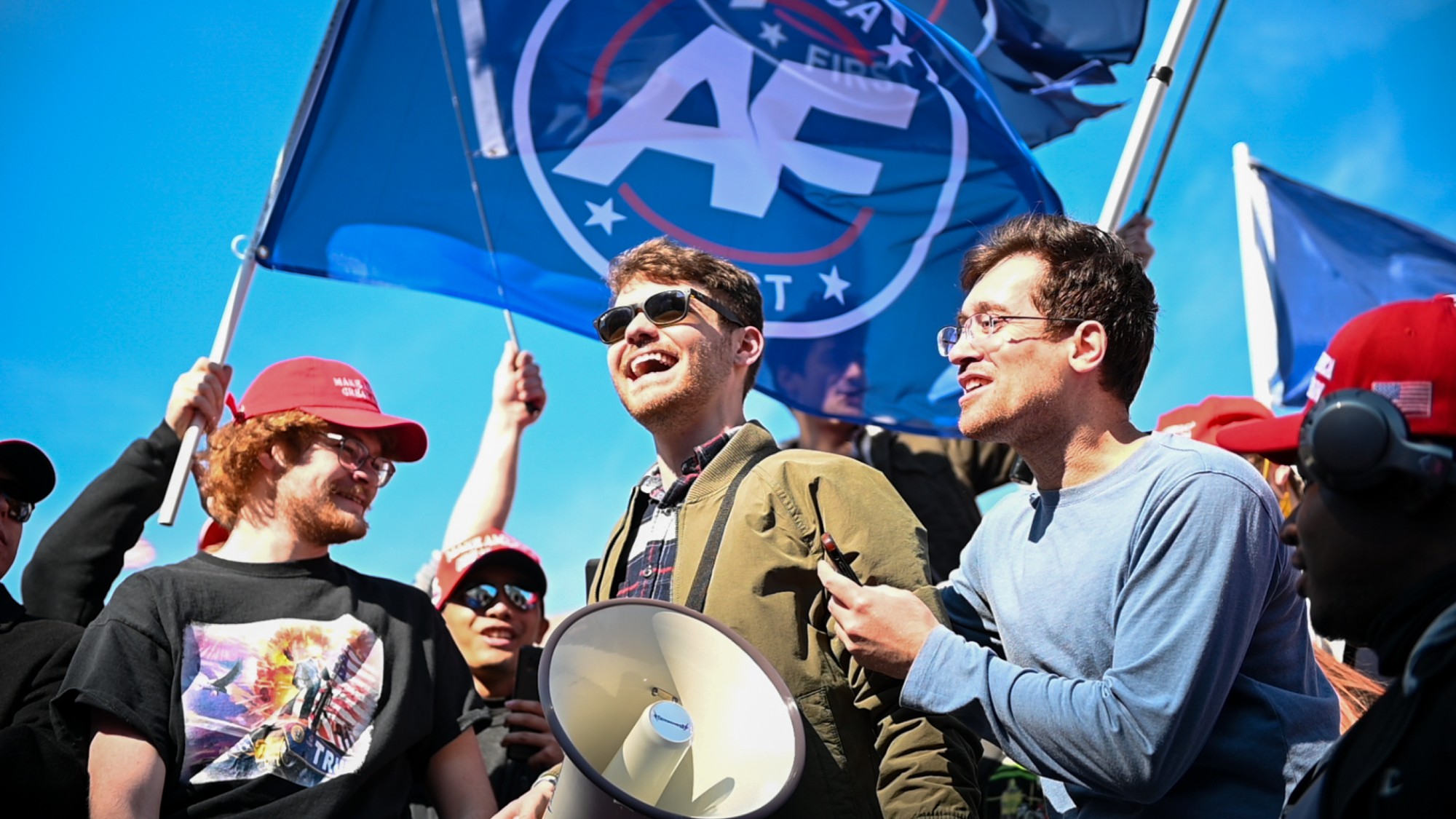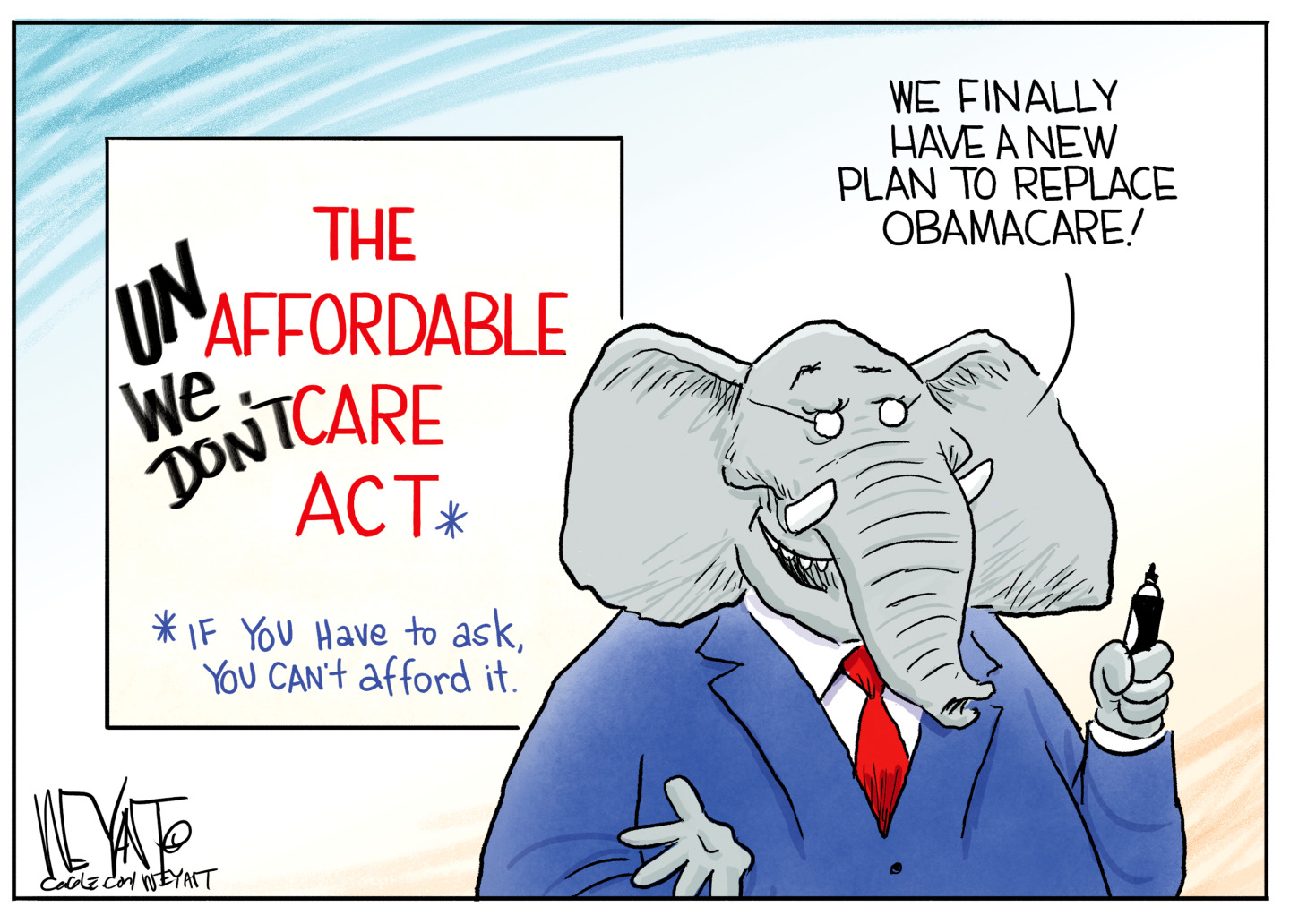How Better Call Saul fixed Breaking Bad's Skyler Problem
Everyone loves Kim on Better Call Saul. Everyone hated Skyler on Breaking Bad. Here's the difference.


Better Call Saul is firing on all cylinders right now. But in lieu of discussing all the details of last week's exceptionally tense episode, which marked the climax of two and a half beautiful, slow-burning seasons, I want to note a small but significant artifact of this artful prequel to Breaking Bad: Namely, that virtually every fan forum discussing this show is overflowing with love for Rhea Seehorn's Kim Wexler.
If you're familiar with how Breaking Bad fandom tended to approach the show's female characters, this fact is so remarkable it demands attention.
Fans of Breaking Bad who read things on the internet will likely recall the show's Skyler problem. It was, put simply, that people hated her — and they weren't supposed to.
The Week
Escape your echo chamber. Get the facts behind the news, plus analysis from multiple perspectives.

Sign up for The Week's Free Newsletters
From our morning news briefing to a weekly Good News Newsletter, get the best of The Week delivered directly to your inbox.
From our morning news briefing to a weekly Good News Newsletter, get the best of The Week delivered directly to your inbox.
For the uninitiated: Skyler was the long-suffering wife of Breaking Bad's antihero-in-residence, Walter White, a high school chemistry teacher whose artful evolution into a drug kingpin is a mainstay of the Difficult Man genre. Skyler was supposed to offer an everyman's perspective on his transformation, a kind of sympathetic anchor the viewer could use to gauge the extent to which her husband was slowly turning monstrous. This is unexceptional: Shows love to use women to measure the extent to which men have morally strayed.
But, as often happens with sympathetic portrayals of antiheroes like Don Draper and Walter White, people fell for the protagonist's hype — hype that was supposed to be ironized. Walter White's growly "I am the one who knocks" speech (delivered to Skyler at a moment when he's actually quailing with fear) has become exactly the kind of fist-pumping You-Go-Guy motto-on-a-mug it was intended to mock. This is, as many critics have observed, the unanticipated challenge of antihero fandom: Draper and White struck many viewers not as deluded and damaged but rather as sincerely powerful macho men. And hey, if they had morally murky dimensions, that's masculinity for ya. Boys will be boys! Etc.
The antihero story was supposed to be a complicated narrative experiment, one that coyly tempted viewers into sympathizing with the dark side. In Breaking Bad, the creators trusted that the viewer's ethical compass would echo and reinforce Skyler's objections. (Sample Skyler position: My dude, no one asked you to cook drugs for the fam. Plus doesn't the cartel kill the families of those who cross them and aren't you supporting their biggest rival?). The theory was that viewers would enter into a provocative state of tension, suspended between their innate sense of right and wrong (which would align with Skyler's) and the seductive power and momentum of Walt's bad decisions. Whom would they side with? The man killing his rivals in the meth trade or his baffled and concerned wife?
It should have been a killer philosophical conundrum. In practice, it turned out to be a lot less vexed. Viewers had less trouble scuttling their better angels than anyone anticipated. They cheered the devil on, worshipped "Heisenberg," and flocked to forums like "I Hate Skyler White."
A free daily email with the biggest news stories of the day – and the best features from TheWeek.com
The hate that flowed to Skyler for the crime of standing in the antihero's way was (to put it mildly) excessive. Facebook pages dedicated to loathing her had thousands of likes. Whole forums were established to revile this fictional wife, dissect her failings, and anticipate her death. The frenzy boiled over to the point where the actor who played her, Anna Gunn, started getting threats. She ended up penning an op-ed on the phenomenon for The New York Times. How did the character who was supposed to be the show's moral center come to inspire this much vitriol? And why?
In that op-ed, Gunn maintains that Skyler was complex and well-written. She was grateful for an unusually complicated role, and attributed this subset of fan response to a colossal misreading that revealed something real and worrying about ambient misogyny: "[T]he show's writers made Skyler multilayered and, in her own way, morally compromised. But at the end of the day, she hasn't been judged by the same set of standards as Walter," Gunn writes.
Emily Nussbaum called this the problem of the "Bad Fan." There will always be some viewers, she wrote, who are "watching [the show] wrong." Nor is this new; Nussbaum pointed out that "there was always a subset of Sopranos fans that just wanted better and bloodier whackings — and there's a subset of Breaking Bad fans that will always want Walt to wear that hot black hat."
I'll say it again: It wasn't supposed to be this way. Vince Gilligan — who co-created Breaking Bad before Better Call Saul with Peter Gould — spoke with real frustration about the fan response to Skyler (and her sister, Marie):
[W]ith the risk of painting with too broad a brush, I think the people who have these issues with the wives being too bitchy on Breaking Bad are misogynists, plain and simple. I like Skyler a little less now that she's succumbed to Walt's machinations, but in the early days she was the voice of morality on the show. She was the one telling him, "You can't cook crystal meth." She's got a tough job being married to this asshole. And this, by the way, is why I should avoid the internet at all costs. People are griping about Skyler White being too much of a killjoy to her meth-cooking, murdering husband? She's telling him not to be a murderer and a guy who cooks drugs for kids. How could you have a problem with that? [Vulture]
Well, a lot of people had a problem with that. And here's my embarrassing confession: While rewatching Breaking Bad recently, I found myself among them.
When Skyler and Marie start passing a "talking pillow" around during an intervention for Walter, I only semi-jokingly turned to my partner to observe that Skyler was the actual worst.
Now, I've spent a lot of time championing the reviled wives of antiheroes. I do think they're judged unfairly. I'm a Betty Draper defender, for heaven's sake — and there's precious little show canon to work with, since Mad Men creator Matt Weiner lost interest in her sometime after season three. None of that means I'm immune to internalized misogyny, but still: My recent reaction to Skyler was so powerful that I've grown reluctant to blame the fans for their response.
I deeply respect Gilligan and Gould. I think they're among the best TV writers working today. But I submit that the problem with Skyler in Breaking Bad is not a fan problem. It's a structural problem.
Here's the thing: Most stories need a villain to work. We secretly like villains because they're so naughty, and the best ones are persuasive too (cf. Satan in Paradise Lost). That's why the antihero recipe works so well: It combines the appeal of being bad with the centrality of protagonism. The inverse truth is that when you've made the wife the antagonist and stripped her of the thrills of villainy — when you've made her not just the boring wife, but also the show's moral center? Well, that there's a recipe for massive annoyance. Which, when you want to be entertained, quickly morphs into hatred.
The great antihero experiment yielded what I like to think of as the Gilligan Theorem: Protagonism, no matter how villainous, easily trumps ethics. A corollary to that theory is that people love momentum, morals be damned, and turn on characters who try to pump the brakes.
Particularly when they're women.
There's simply no separating the vitriol Skyler received from her femininity, and that's because Walt's journey is wrapped up in questions of masculinity. Walt's secret appeal was that he was climbing to manly-man power as he was breaking bad. Skyler was worse than a nag, then — she was an unworthy adversary. It didn't help that she was pregnant (read: less sexually available). Or that she had an annoying sister — who was married to the greatest threat to Walt: Hank, a DEA agent.
The show structurally invites you to hate weakness, to share Walt's pride as he gets stronger. What could be more antithetical to his progress than his annoying pregnant wife who thinks her support matters? Who supposes — wrongly — that she, with her domestic demands and annoying extended family — could help him?
You know who doesn't have an annoying sister? Or a pregnant belly? Or a baby? Or any vulnerability — or expectations of the antiheroic protagonist? Kim Wexler.
Better Call Saul's Kim is put together. She's sexy. Whereas Skyler was homebound a lot of the time, a lumpen shadow haunting the White abode, Kim barely has a home at all; she showers at the gym. Skyler starts the series glumping around in robes and hideous beauty masks. Kim wakes up looking amazing in a T-shirt.
Skyler insists on helping and even arranges an intervention to force Walt to accept help (cf. the Talking Pillow above). Walt resents her every intervention, and because we spend the most time in his perspective, so do we. But when Jimmy asks Kim to stop helping, she says exactly one word: okay.
Of course, Kim does help: She ably and loyally represents Jimmy during his hearing. Kim is supportive precisely when Jimmy wants support and absent the rest of the time. Her position is that Jimmy owes her nothing, and she won't accept the little he tries to give her. As for family — does she have any? We know so much about Jimmy's back story, his feelings about his brother, his history with his gullible dad. Do we actually know a single thing about Kim Wexler? No! She's marvelous precisely because she's unfettered by back story.
I love Kim, but there's no escaping the fact that she's a Cool Girl. As Anne Helen Petersen explains:
Cool Girls don't have the hang-ups of normal girls: They don't get bogged down by the patriarchy, or worrying about their weight. They're basically dudes masquerading in beautiful women's bodies, reaping the privileges of both. But let's be clear: It's a performance. It might not be a conscious one, but it's the way our society implicitly instructs young women on how to be awesome: Be chill and don't be a downer, act like a dude but look like a supermodel. [BuzzFeed]
Kim is all of that and more. She's gorgeous. Smart. Funny. Responsive. Best of all, she's an enabler for Jimmy's shenanigans. The show likes to pretend that Kim is a straight shooter, a moral compass for Jimmy akin to what Skyler was supposed to be. In practice, Kim plays "Giselle" to Slippin' Jimmy and scams dudes out of $50 tequila shots.
There's a reason everyone loves Kim, and it isn't just that Rhea Seehorn is awesome (though she is). No, it's that in a show that sets some difficult narrative goals for itself, it gives itself a total pass when it comes to the women. If Skyler was structurally impossible to love, Kim Wexler is structurally impossible to hate.
Now, that's one way to solve the Skyler problem — eliminate everything about her that made her vulnerable, annoying, and, well, human. But it strikes me as a disappointing overcorrection.
I've enjoyed Better Call Saul for how intelligently it broke with the masculinity fetish that sometimes plagued Breaking Bad. But I hope that whatever Gilligan and Gould decide to tackle next involves finding a storytelling structure that doesn't depend on you rooting for the antihero against a vulnerable, needy, moralizing, housebound party — whether it's a Skyler or indeed, a Chuck.
Lili Loofbourow is the culture critic at TheWeek.com. She's also a special correspondent for the Los Angeles Review of Books and an editor for Beyond Criticism, a Bloomsbury Academic series dedicated to formally experimental criticism. Her writing has appeared in a variety of venues including The Guardian, Salon, The New York Times Magazine, The New Republic, and Slate.
-
 A luxury walking tour in Western Australia
A luxury walking tour in Western AustraliaThe Week Recommends Walk through an ‘ancient forest’ and listen to the ‘gentle hushing’ of the upper canopy
-
 What Nick Fuentes and the Groypers want
What Nick Fuentes and the Groypers wantThe Explainer White supremacism has a new face in the US: a clean-cut 27-year-old with a vast social media following
-
 5 highly amusing cartoons about rising health insurance premiums
5 highly amusing cartoons about rising health insurance premiumsCartoon Artists take on the ACA, Christmas road hazards, and more
-
 Walter Isaacson's 'Elon Musk' can 'scarcely contain its subject'
Walter Isaacson's 'Elon Musk' can 'scarcely contain its subject'The latest biography on the elusive tech mogul is causing a stir among critics
-
 Welcome to the new TheWeek.com!
Welcome to the new TheWeek.com!The Explainer Please allow us to reintroduce ourselves
-
 The Oscars finale was a heartless disaster
The Oscars finale was a heartless disasterThe Explainer A calculated attempt at emotional manipulation goes very wrong
-
 Most awkward awards show ever?
Most awkward awards show ever?The Explainer The best, worst, and most shocking moments from a chaotic Golden Globes
-
 The possible silver lining to the Warner Bros. deal
The possible silver lining to the Warner Bros. dealThe Explainer Could what's terrible for theaters be good for creators?
-
 Jeffrey Wright is the new 'narrator voice'
Jeffrey Wright is the new 'narrator voice'The Explainer Move over, Sam Elliott and Morgan Freeman
-
 This week's literary events are the biggest award shows of 2020
This week's literary events are the biggest award shows of 2020feature So long, Oscar. Hello, Booker.
-
 What She Dies Tomorrow can teach us about our unshakable obsession with mortality
What She Dies Tomorrow can teach us about our unshakable obsession with mortalityThe Explainer This film isn't about the pandemic. But it can help viewers confront their fears about death.
